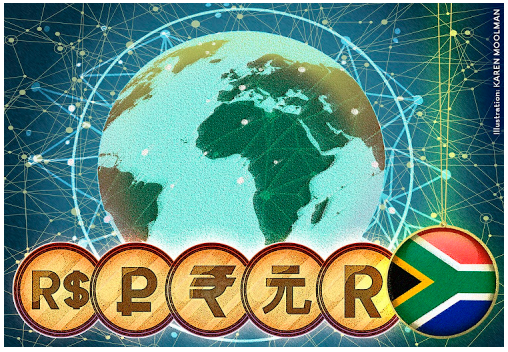As SA enters the era of coalition politics, the government of national unity (GNU) must unite in developing a strategic, coherent and consistent foreign policy agenda. The 2024 Brics summit, hosted by Russia, marks a pivotal moment for SA to recalibrate its role on the international stage. With the group’s growing influence, SA must prioritise its national interests and ensure that its engagement with Brics aligns with its constitutional values and democratic aspirations.
The DA has been clear throughout that SA’s foreign policy should focus on prioritising our national interest, while seeking to advocate for a just, peaceful and equitable world. This includes engaging in global governance reforms and supporting efforts aligned with the AU’s Agenda 2063. Yet there is a growing tension emanating from SA’s political engagements within the Brics+ group that is becoming impossible to ignore in the context of the GNU.
Brics, initially conceived as a multilateral forum focused on economic co-operation, has evolved into a geopolitical bloc. This is evident from the inclusion of new members such as Iran and the United Arab Emirates. This expansion signals a shift towards positioning Brics as a counterbalance to Western-dominated forums such as the Group of Seven (G7) and its recent summits have demonstrated an overtly political tone. For SA this presents both opportunities and challenges.
On the one hand, Brics offers a platform for advancing South-South co-operation and advocating for global governance reforms. SA’s role as a bridge between the Global North and South could enable it to champion a more just and equitable international order. However, this will require a delicate balance, as the political shifts within Brics risk alienating SA’s traditional Western allies, including the EU and the US, which remain our largest investors and trade partners.
The importance of the EU and US as trade and investment partners cannot be overstated. The EU remains SA’s largest investor, contributing to job creation and economic stability. According to the latest available figures the EU accounted for 53.7% of total foreign direct investment (FDI) stocks in SA, with more than 1,000 EU companies operating within the country. Meanwhile the US, through initiatives such as the African Growth & Opportunity Act (Agoa), has provided preferential market access that supports key industries, particularly automotive and agricultural exports.
Given the critical economic ties with the West, SA must ensure that its involvement in Brics does not undermine these relationships. While Brics presents potential opportunities for more formalised multilateral economic co-operation, it is essential that SA maintains a diversified foreign policy that leverages both its Eastern and Western partnerships. Over-reliance on Brics, particularly amid the bloc’s growing alignment with authoritarian regimes, risks damaging SA’s diplomatic credibility and long-term economic prospects.
At the heart of SA’s foreign policy must be a commitment to its constitutional values, including human rights, democracy and justice. However, the growing influence of countries such as Russia and Iran within Brics presents a challenge to these principles. Russia’s ongoing war in Ukraine and Iran’s record of human rights abuses are antithetical to the ideals SA’s democracy is built on. Continued association with nations that flout international law risks undermining SA’s global image as a defender of human rights.
To navigate these complexities SA must reclaim its role as a bridge-builder within Brics. This means leveraging its diplomatic legacy to promote dialogue and consensus-building, rather than aligning itself with anti-Western rhetoric. SA can play a meaningful role in preventing Brics from being reshaped into an anti-Western alliance, advocating instead for a more constructive engagement with the global community.
As Brics expands and attempts to reshape the global geopolitical landscape, SA has a unique opportunity to position itself as a leader in both regional and global affairs. Its historical reputation as a champion of peace, human rights and constitutional democracy affords it significant (albeit diminishing) moral authority. By focusing on economic diplomacy that addresses domestic challenges, SA can strengthen its position within Brics while ensuring that its foreign policy aligns with its national values and interests.
The 2024 Brics summit has once again underscored the need for SA to strike a careful balance in its foreign relations. While Brics presents valuable opportunities for South-South co-operation, it is imperative that SA maintains its ties with the West and continues to uphold the principles that define its democracy. As the world becomes increasingly divided, SA must navigate these turbulent waters with both caution and conviction, ensuring that its foreign policy remains rooted in the values of its constitution.


